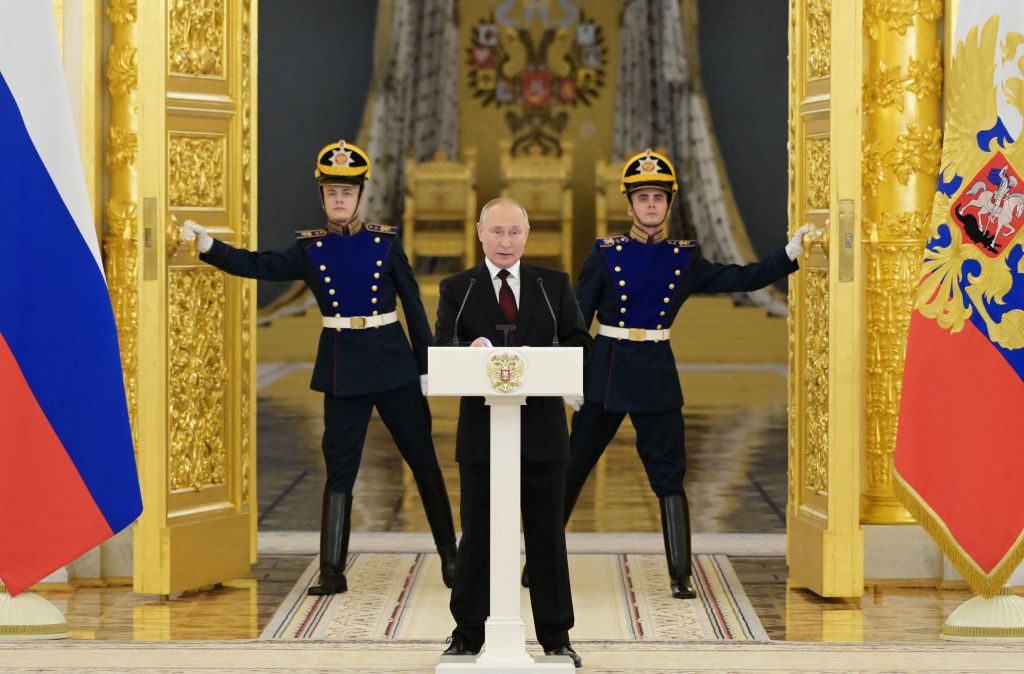
As the war in Ukraine grinds on with no end in sight, it is increasingly important to understand what drives Russia. Is the war President Vladimir Putin’s personal crusade to restore Russia to some notion of former Soviet glory, or does it have deeper historical and geopolitical roots? Is a negotiated settlement possible and, if so, would it provide the basis for a lasting peace, or should Ukraine and the West dig their heels in further and prepare for a long haul?
In Orlando Figes’s view, recent analyses of Russia’s war focus excessively on Putin’s idiosyncrasies, his oligarchic entourage, and events since the breakup of the Soviet Union in 1991. Instead, Figes recommends that political and military analysts cast a much wider net, drawing lessons from Russia’s long history.
Figes teaches at Birkbeck College at the University of London and Trinity College at the University of Cambridge and has published extensively on Russian and European history. In
The story of Russia, he provides a compact but comprehensive account of Russia’s past, concluding with reflections on where Russia is heading.
Figes’s elegantly written book takes the reader from Russia’s Viking and Slavic origins in the 7th century and the Kievan Rus era, through the rule of the Mongols, imperial Russia and the rise and fall of the Soviet Union, to the present day. In the process, he explores numerous themes of relevance to the war in Ukraine.
Russian autocracy has always been absolute. In Western Europe, state and crown gradually diverged, paving the way for today’s liberal democracies. The monarchs that remain lack political power. In Russia, attempts at reform came too late. Figes reminds us that Russia’s autocratic state has broken down twice, in 1917 and 1991. But both times autocracy was reborn in a different form.
In the West, state and church also gradually separated, while in Russia, political power and religion remained intertwined. In Italy, the home to many of Moscow’s architects, churches were built outside the city walls, while in Moscow the most important churches were built within the Kremlin. Reflecting this close relationship, Patriarch Kirill, the head of the Russian Orthodox Church, has
thrown his weight behind Putin’s invasion of Ukraine.
Unlike China, which built a defensive wall and acquired buffer zones, Russia has always been expansionist. From the Mongol conquest in the 11th century, Russia learned that the best way to defend itself was to control as much of the Eurasian steppe as possible. Following the collapse of the Mongol empire, Russia expanded through Siberia and Central Asia, eventually reaching the Pacific.
The strategic significance of the Black Sea is crucial to understanding the invasion of Ukraine. Without the Black Sea, Russia has no maritime access to Europe except through the Baltic Sea, which can easily be blocked. Empress Catherine II (‘the Great’) annexed Crimea in 1783, and today Sevastopol is home to Russia’s Black Sea Fleet, a key element in its naval defence.
Figes traces Russia’s current-day oligarchy and corruption back to the late Middle Ages, when
boyars (feudal noblemen) were granted land ownership and wealth as a reward for their loyalty to the grand duke in Moscow. During this period, the practice of ‘feeding from the land’ took root, with officials extracting goods and money from the population. This relationship was not unlike Putin’s alliance with his oligarchs, whose wealth depends on their loyalty to Putin.
Figes also discusses the evolution of Russia’s military. Under Tsar Ivan IV (‘the Terrible’), landowners provided the army with soldiers, based on the size of their holdings. Tsar Peter I (‘the Great’) expanded conscription, with groups of peasant households providing soldiers for life. What the military lacked in quality it made up for in quantity. In World War II, the Red Army lost about 12 million soldiers, three times Nazi Germany’s military losses.
In its war on Ukraine, Russia is again tapping into its large supply of peasant soldiers. In late 2022, Putin announced the mobilisation of an additional 300,000 conscripts. Most
come from rural and remote areas and are poorly equipped. With a top-heavy command structure and ineffective non-commissioned officers, in Ukraine Russia’s military has
lost disproportionate numbers of senior officers. Interestingly, this problem dates back to tsarist Russia, where NCOs were poorly trained and unreliable.
The war in Ukraine has turned Western public opinion against Russia. Within Russia, however, polls indicate a
high level of support for Putin and his ‘special military operation’. Significantly, there is little evidence of domestic opposition to the war. Figes ascribes this largely to attitudes carried over from the Soviet era, including low material expectations, social conformism and acceptance of authority.
Figes reviews future scenarios. He is concerned that Russia is trapped in a repetitive historical cycle, continuously reverting to Soviet-style authoritarianism. Russia has caused massive death, human suffering and destruction in Ukraine and triggered global energy and food crises. But in the long run, Figes notes, Russia itself is the biggest loser, inflicting enormous damage on its people and economy and setting its own development back decades.
 Print This Post
Print This Post